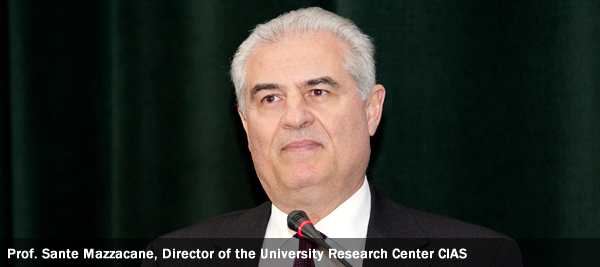Relentless and alarming scientific research, and a succession of sensational newspaper articles on multi-resistant bacteria have reached a climax. Academic and political concern for the consequences of multi-resistant bacteria on people’s health is increasing. Worst of all, there appears to be an absence of effective ways to counter superbugs, which are resisting even the strongest of super-antibiotics. “If scientists call it the ‘ post-antibiotic era or antibiotic apocalypse’ t he alert level must be raised and everything possible must be done immediately. ” said Alberto Rodolfi, President of Copma.
Writing last month in ‘The Lancet’ medical journal, David Paterson and Patrick Harris from Australia’s University of Queensland, say that a new critical era has arrived for the use of anti-biotics in veterinary and human health.
“Studies conducted by researchers at the University of Ferrara suggest that something can be done,” said Copma’s Rodolfi. “With the probiotics based PCHS it is possible to have a healthier environment, with low and stable presence of potentially pathogenic germs; therefore we must all act without delay in terms of our health environment. First, we must reduce this first level of risk,” says Copma CEO, Mario Pinca.
“Recently, a new study has been completed on the impact of the PCHS sanitation system on the microbiota in the hospitals surfaces,” said Prof. Sante Mazzacane, Director of the University Research Center CIAS, “On one hand, this confirms results which are already the subject of previous International scientific publications as far as safety and hygiene are concerned; and on the other hand, it highlights new possible scenarios concerning the reduction of the resistance possessed by pathogens as a result of the application of these protocols. The results are now being published in international scientific journals”
Mario Pinca added: “The timing of this new study is critical, because, as The Lancet reported, in China a new gene has been observed which makes bacteria highly resistant to a last-resort class of antibiotics. The gene has been found in people and pigs in China – including in samples of bacteria with epidemic potential.
Reuters news agency reported that Laura Piddock, a professor of microbiology at Britain’s Birmingham University wrote: “All use of polymyxins must be minimized as soon as possible and all unnecessary use stopped.”
According to Reuters, the team already has evidence of the gene “being transferred between common bacteria such as E.coli, which causes urinary tract and many other types of infection, and Klesbsiella pneumoniae, which causes pneumonia and other infections.”
Pinca remarked: “The impressive progression of antibiotic resistance should lead the scientific community and institutional authorities to seek every possible solution by evaluating the potential deriving from what researchers at the University of Ferrara found on the reduction of the resistance possessed by pathogens. ”
